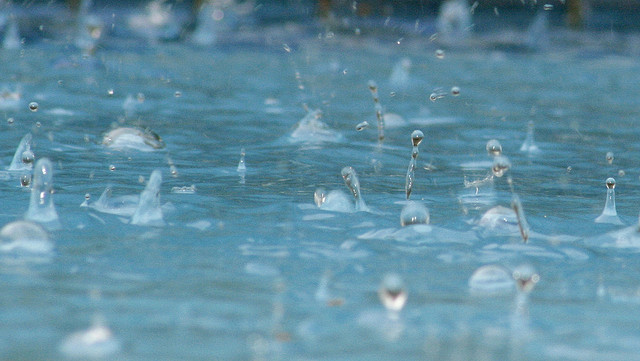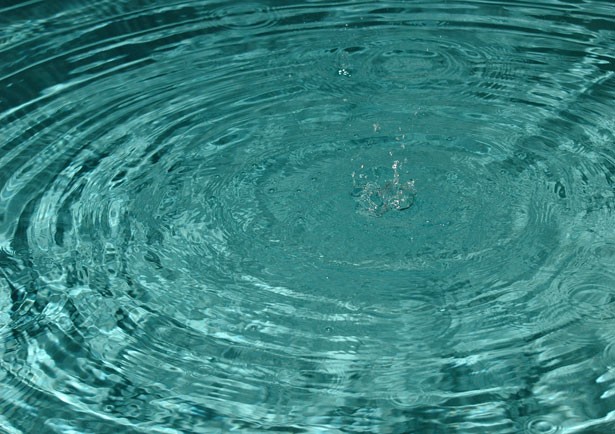As most pool owners already know, the natural process of rainfall can have a few interesting effects on a swimming pool. Rain is acidic, which means that it has its own pH. Let’s also not forget that with rainfall comes the potential for unwanted contaminants entering your pool. However, this is all dependent on the amount of rainfall and your own pool maintenance habits. Let’s take a closer look at how rain affects a swimming pool.
How does rain affect my swimming pool water chemistry?
Ideally, pool owners strive to keep their pool’s pH between 7.4-7.6. In case you’ve ever wondered exactly why, this number is directly correlated to the human body. The pH of human skin sits between 4.4 -5.0. In order to avoid irritation when we enter the pool, the pH of the water must be at level with, or higher than that of our skin’s pH. But our skin isn’t the only factor involved. Our eyes also have a pH separate from that of our skin, sitting around 7.5 pH. Therefore in order for us to enjoy a fully comfortable swim, it’s best to keep pool pH between 7.4-7.6. But when rainfall with a natural pH of 5.0 finds it’s way into pool water in excessive amounts (several inches of rain in a short amount of time), it can greatly lower the pH of the pool water. The lower the pH of the pool water, the more acidic it will feel. If you’ve ever opened your eyes in a pool to have them irritated seconds later, this is the usual reason why. Not to mention the damage corrosive water can cause to your pool heat pump and
But when rainfall (average pH of 5.0) finds its way into our pool water in excessive amounts, it can greatly lower pH. The lower the pH of the pool water, the more acidic it will feel to us. If you’ve ever opened your eyes in a pool to have them irritated seconds later, this is the usual reason why. Moreover, it’s also important to consider the damage “acidic” water can cause to your pool heat pump and filtration system as a whole.
How else does rain water affect my swimming pool?
From dirt and dust to leaves, twigs, and whatever traces of chemicals linger around your pool – all of these elements can affect not only your pool chemistry, but also contribute to the buildup of unwanted contaminants. Contaminants that can quickly accumulate in your filtration system if left unattended. This is just one of the many reasons why proper pool maintenance is so important. However, that’s not to say that rain is ALL bad.
It may surprise you to know that there are certain chemicals in pool water that can be particularly difficult to alter. Both stabilizer and calcium require diluting the pool in order to be brought down. These two chemicals can easily rise higher than their ideal levels when too many chlorine tablets are left in the pool. Chlorine tablets contain a fixed amount of stabilizer but have no real means of regulating it. Therefore, over time, the tablets can easily release too much stabilizer into the pool. In this instance, rainfall acts as a means of natural dilution. That being said, it’s still a good idea to test your chemical levels and adjust as needed after a major rainfall.
Closing note
When it comes to rain, as long as you’re maintaining your pool and water chemistry properly, you don’t have much to worry about. Develop a regular schedule for checking up on the condition of the pool – this ensures that your pool water stays as healthy as possible and that you don’t end of with a surprise green swamp.



